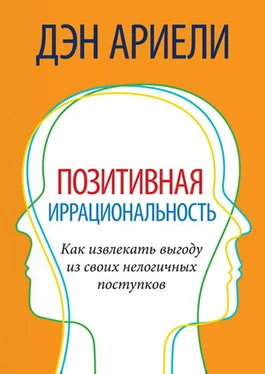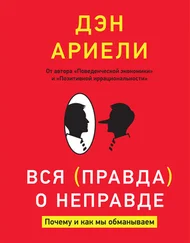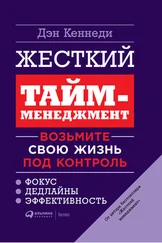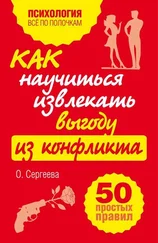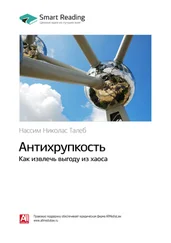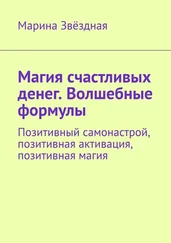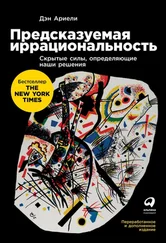Ниже приводится перечень материалов, на которых основано содержание глав этой книги, а также список источников, рекомендуемых для дальнейшего изучения описанных в книге вопросов.
Вступление
Уроки промедления и побочные медицинские эффекты
Дополнительные источники:
George Akerlof, «Procrastination and Obedience», American Economic Review (1991) .
Dan Ariely and KlausWertenbroch, «Procrastination, Deadlines and Performance: Self-control by Precommitment», Psychological Science (2002).
Stephen Hoch and George Loewenstein, «Time-Inconsistent Preferences and Consumer Self-Control», Journal of Consumer Research (1991).
David Laibson, «Golden Eggs and Hyperbolic Discounting», Quarterly Journal of Economics (1997).
George Loewenstein, «Out of Control: Visceral Influences on Behavior», Organizational Behavior and Human Decision Processes (1996).
Ted O’Donoghue and Matthew Rabin, «Doing It Now or Later», America Economic Review (1999).
Thomas Schelling, «Self-Command: A New Discipline», Choice Over Time [Editors: John Elster and George Lowenstein], New York: Russell Sage Foundation (1992).
Часть 1
Неожиданные способы, которыми мы отвергаем логику на работе
Глава 1
Платить больше за меньшее: почему бессильны большие бонусы
Библиография:
Dan Ariely, Uri Gneezy, George Loewenstein and Nina Mazar, «Large Stakes and Big Mistakes», The Review of Economic Studies (2009).
Mihaly Csikszentmihalyi, «Flow: The Psychology of Optimal Experience», New York: Harper and Row (1990).
Daniel Kahneman and Amos Tversky, «Prospect Theory: An Analysis of Decision under Risk», Econometrica (1979).
Robert Yerkes and John Dodson, «The Relation of Strength of Stimulus to Rapidity of Habit-Formation», Journal of Comparative Neurology and Psychology (1908).
Robert Zajonc, «Social Facilitation», Science (1965).
Robert Zajonc, Alexander Heingartner and Edward Herman, «Social Enhancement and Impairment of Performance in the Cockroach», Journal of Personality and Social Psychology (1969).
Racheli Barkan, Yosef Solomonov, Michael Bar-Eli and Dan Ariely, «Clutch Players at the NBA», manuscript Duke University (2010).
Дополнительные источники:
Robert Ashton, «Pressure and Performance in Accounting Decision Setting: Paradoxical Effects of Incentives, Feedback and Justification», Journal of Accounting Research (1990).
John Baker, «Fluctuation in Executive Compensation of Selected Companies», The Review of Economics and Statistics (1938).
Roy Baumeister, «Choking Under Pressure: Self-Consciousness and Paradoxical Effects of Incentives on Skillful Performance», Journal of Personality and Social Psychology (1984).
Roy Baumeister and Carolin Showers, «А Review of Paradoxical Performance Effects: Choking under Pressure in Sports and Mental Tests», European Journal of Social Psychology (1986).
Ellen Langer and Lois Imber, «When Practice Makes Imperfect: The Debilitating Effects of Overlearning», Journal of Personality and Social Psychology (1979).
Chu-Min Liao and Richard Masters, «Self-Focused Attention and Performance Failure Under Psychological Stress», Journal of Sport and Exercise Psychology (2002).
Dean Mobbs, Demis Hassabis, Ben Seymour, Jennifer Marchant, Nikolaus-Weiskopf, Raymond Dolan and Christopher Frith, «Choking on the Money: Reward-Based Performance Decrements Are AssociatedWith Midbrain Activity», Psychological Science (2009).
Kenneth McGraw, «The Detrimental Effects of Reward on Performance: A Literature Review and a Prediction Model», The Hidden Costs of Reward: New Perspectives of Human Behaviour [Editors: Mark Lepper and David Greeene], New York: Erlbaum (1978).
Глава 2
Смысл труда: как конструктор Lego может научить получать радость от работы
Библиография:
Dan Ariely, Emir Kamenica and Drazen Prelec, «Mans Search for Meaning: The Case of Legos», Journal of Economic Behavior and Organization (2008).
Glen Jensen, «Preference for Bar Pressing over Freeloading as a Function of the Number of Unrewarded Presses», Journal of Experimental Psychology (1963).
Glen Jensen, Calvin Leung and David Hess, «‘Freeloading’ in the Skinner Box Contrasted with Freeloading in the Runway», Psychological Reports (1970).
George Loewenstein, «Because it is There: The Challenge of Mountaineering .. for Utility Theory», Kyklos (1999).
Дополнительные источники:
George Akerlof and Rachel Kranton, «Economics and Identity», Quarterly Journal of Economics (2000).
David Blustein, «The Role of Work in Psychological Health and Well-Being: A Conceptual, Historical and Public Policy Perspective», American Psychologist (2008).
Armin Falk and Michael Kosfeld, «The Hidden Costs of Control», American Economic Review (2006).
I.R. Inglis, Bjorn Forkman and John Lazarus, «Free Food or Earned Food? A Review and Fuzzy Model of Contra Freeloading» Animal Behaviour (1997).
Ellen Langer, «The Illusion of Control», Journal of Personality and Social Psy chology (1975).
Anne Preston, «The Nonprofit Worker in a For-Profit World», Journal of Labor Economics (1989).
Глава 3
Эффект IKEA: почему мы склонны переоценивать то, что делаем
Библиография:
Gary Becker, Morris Н. DeGroot and Jacob Marschak, «An Experimental Study of Some Stochastic Models for Wagers», Behavioral Science (1963).
Leon Festinger, «А Theory of Cognitive Dissonance», Stanford , CA: Stanford University Press (1957).
Nikolaus Franke, Martin Schreier and Ulrike Kaiser, «The T Designed It Myself Effect in Mass Customization», Management Science (2009).
Michael Norton, Daniel Mochon and Dan Ariely, «The IKEA Effect: When La bor Leads to Love», manuscript Harvard University (2010).
Дополнительные источники:
Hal Arkes and Catherine Blumer, «The Psychology of Sunk Cost», Organiza tional Behavior and Human Decision Processes (1985).
Neeli Bendapudi and Robert P. Leone, «Psychological Implications of Costumer Participation in Co-Production», Journal of Marketing (2003).
Ziv Carmon and Dan Ariely, «Focusing on the Forgone: How Value Can Ap pear So Different to Buyers and Sellers», Journal of Consumer Research (2000).
Daniel Kahneman, Jack Knetsch and Richard Thaler, «Experimental Tests of the Endowment Effect and the Coase Theorem», Journal of Political Economy (1990).
Daniel Kahneman, Jack Knetsch and Richard Thaler, «Anomalies: The Endowment Effect, Loss Aversion and Status Quo Bias», Journal of Economic Perspectives (1991).
Читать дальше
Конец ознакомительного отрывка
Купить книгу
